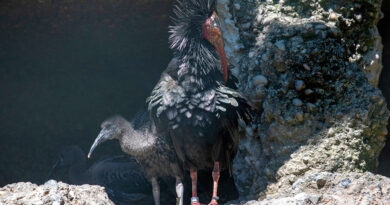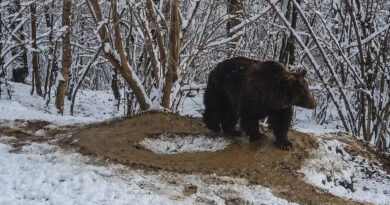Hope For Endangered Migratory Bird As Female Returns Home To British Foster Mum
There may be hope yet for the endangered northern bald Ibis species after this female called Robigus returned home to her British foster mother who lives in Austria.
Conservationists are celebrating after Robigus returned home on her own after she was born two years ago at Rosegg Zoo, which is located near the famous southern Austrian Woerthersee Lake in Carinthia.
The zoo is partnered with the Waldrapp Project, which is headed up by northern bald Ibis (Geronticus eremita) expert Johannes Fritz, to reintroduce the endangered species to Europe after its numbers dwindled over the last 300 years, with only a few hundred remaining in Morocco.
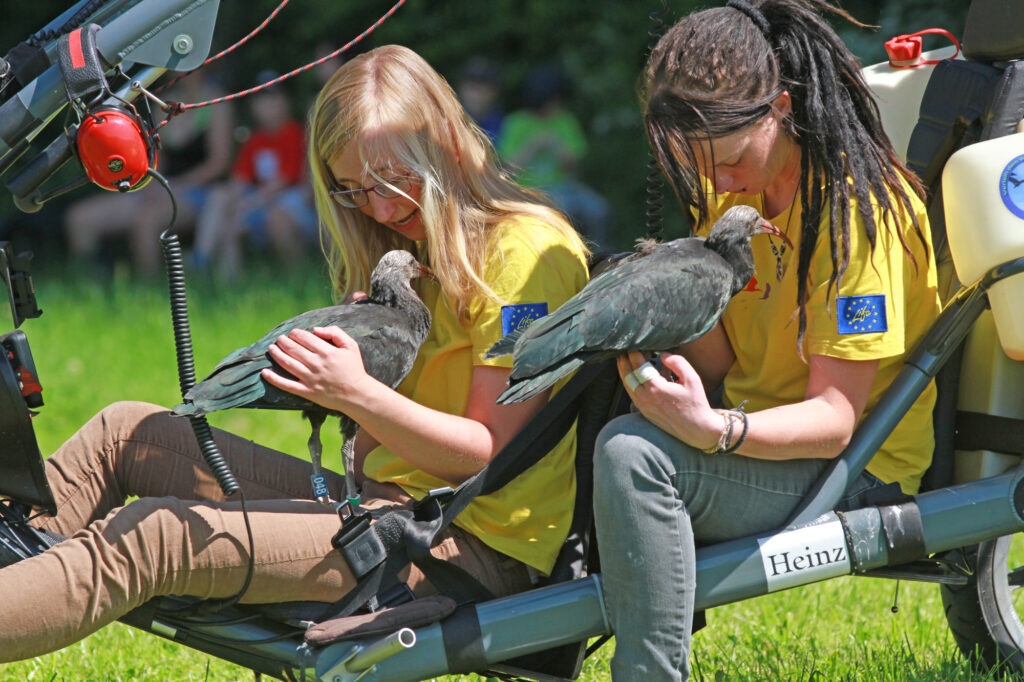
British woman Lynne Hafner, who is originally from Surrey in England but now lives in Austria and helps run the Rosegg project, told Newsflash: “The birds have to be taught to fly south in the first year otherwise they can never learn it.”
She said it was great that Robigus had come back especially as she did not need to return home because at two years of age, she is still too young to breed.
Next year when she comes back and mixes with birds living there all year round, they hope she will breed and bring her own younglings south when she migrates.
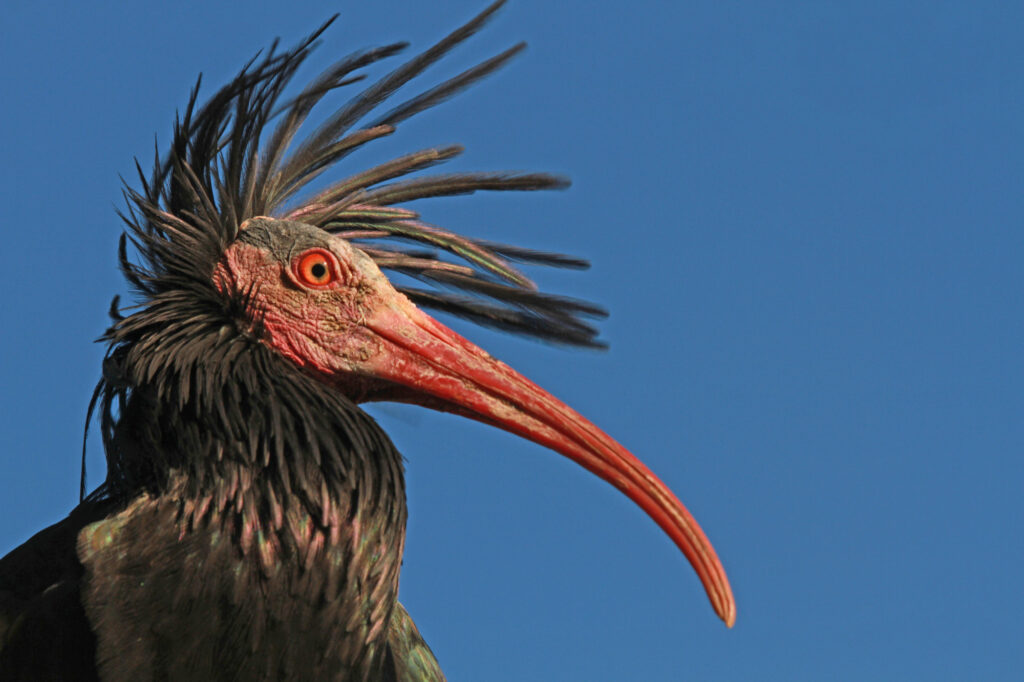
Typically they fly solo unless there are younglings that want to fly with them and learn the route.
She said that Robigus learned to fly south by following one of the more experienced birds from another colony that was brought in to teach her the way.
Her return this year was not straightforward, as they found that she spent some time in Slovenia before then flying over to live near Graz Airport and then finally deciding to head home. They expect she will be here for another month before flying off back south.

The success of this project will mean an additional migratory colony alongside those that have formed from the same core group in Germany and elsewhere in Austria.
She said that the road to the success started in 2004 when the colony was founded, so it has been a long journey.
The species was first reintroduced in Europe by Johannes Fritz and his team, with Fritz using a microlight to teach birds from a zoo population how to fly south to winter feeding grounds in southern Tuscany.
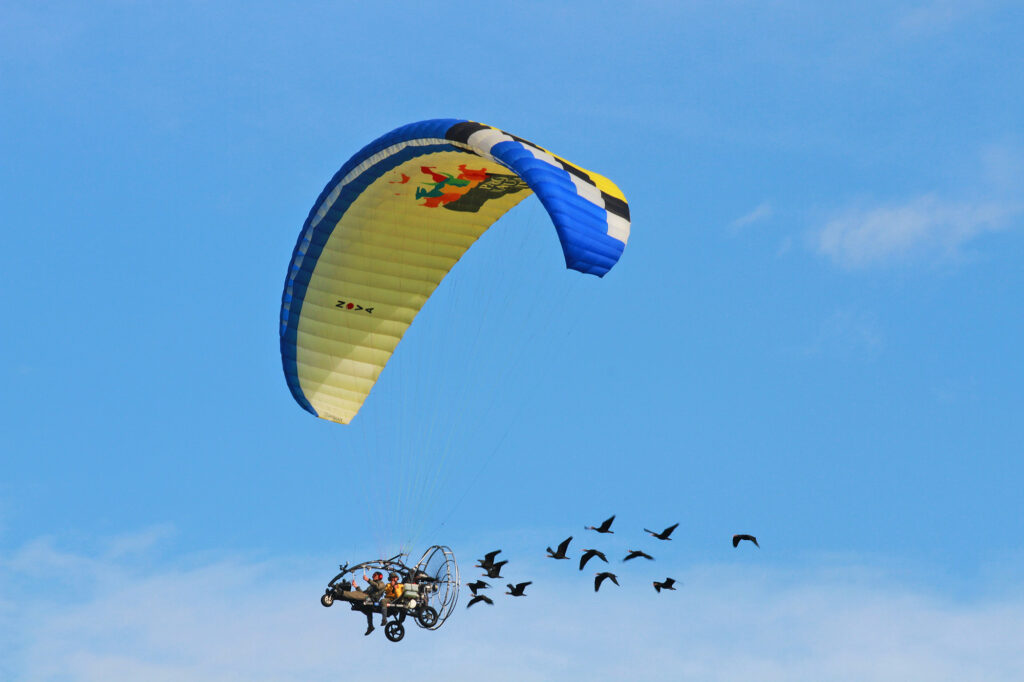
The birds settled in the Austrian and German Alps and their colonies are continuing to breed and expand.
The project managed to train the birds to follow the microlight by imprinting, a form of learning in which an animal gains its sense of identification, and into thinking that their human carers were their real parents when they were born.
However, the project has been severely hampered by hunters, particularly in Italy, who take their toll on the birds as they fly south and then return to the Alps to breed.
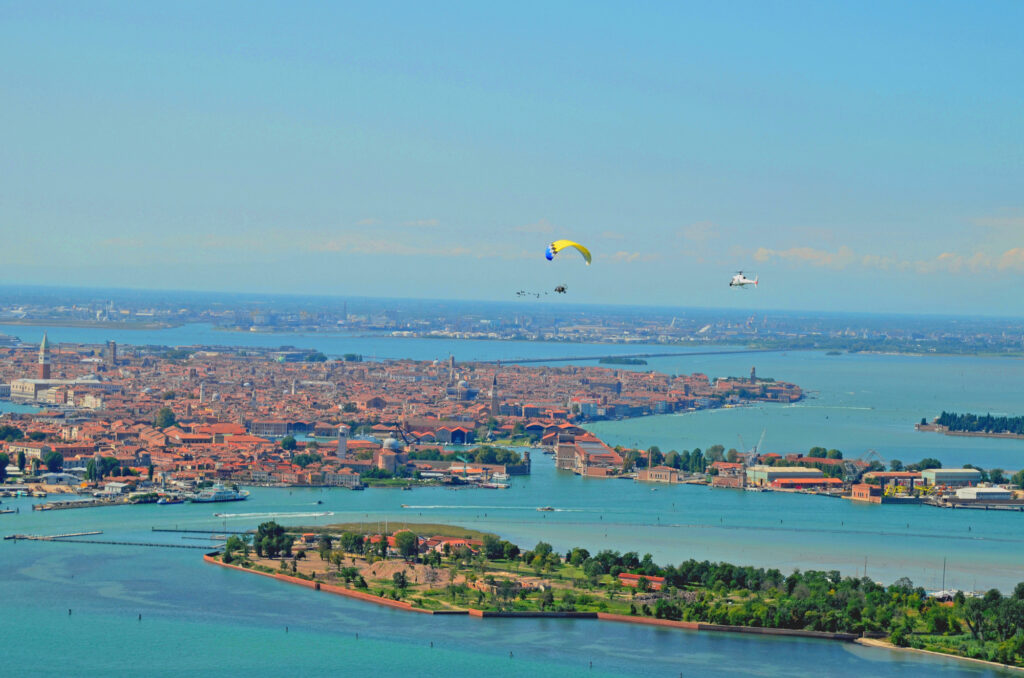
The Northern Bald Ibis, one of the most endangered migratory bird species worldwide, was native in Central Europe until the 17th century before it became extinct due to overhunting and because of people stealing the eggs.


